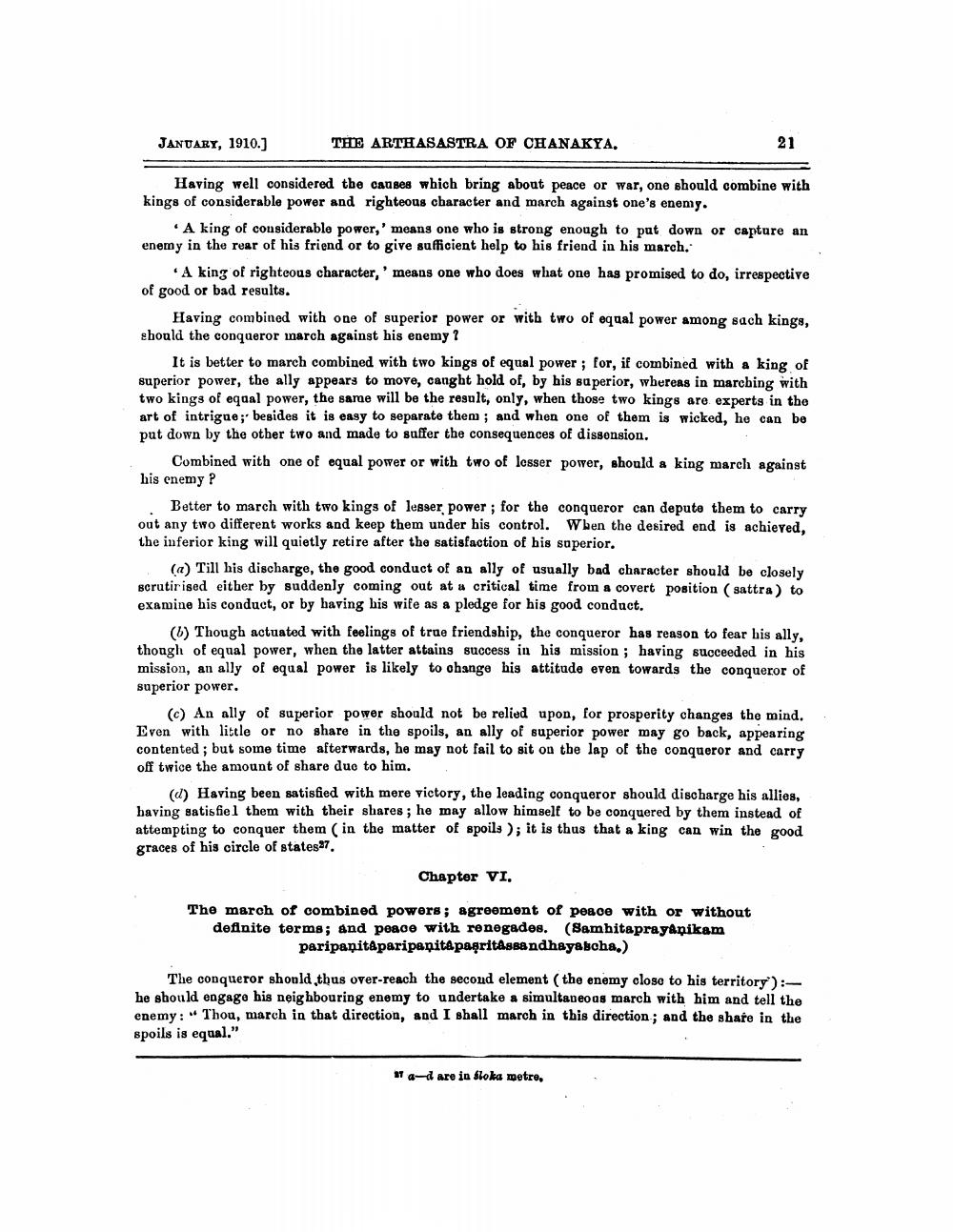________________
JANUARY, 1910.)
THE ARTHASASTRA OF CHANAKYA.
21
Having well considered the causes which bring about peace or war, one should combine with kings of considerable power and righteous character and march against one's enemy.
A king of considerable power,' means one who is strong enough to put down or capture an enemy in the rear of his friend or to give sufficient help to his friend in his march.
A king of righteous character,' means one who does what one has promised to do, irrespective of good or bad results.
Having combined with one of superior power or with two of oqual power among sach kings, ebould the conqueror march against his enemy?
It is better to march combined with two kings of equal power ; for, if combined with a king of superior power, the ally appears to move, caught hold of, by his superior, whereas in marching with two kings of equal power, the same will be the result, only, when those two kings are experts in the art of intrigue;' besides it is easy to separate them; and when one of them is wicked, he can be put down by the other two and made to suffer the consequences of dissension,
Combined with one of equal power or with two of lesser power, should a king march against his enemy?
Better to march with two kings of lesser power; for the conqueror can depute them to carry out any two different works and keep them under his control. When the desired end is achieved, the inferior king will quietly retire after the satisfaction of his superior.
(@ Till his discharge, the good conduct of an ally of usually bad character should be closely scrutirised either by suddenly coming out at a critical time from a covert position (sattra) to examine his conduct, or by having his wife as a pledge for his good conduct.
(6) Though actuated with feelings of true friendship, the conqueror has reason to fear his ally, though of equal power, when the latter attains success in his mission; having succeeded in his mission, an ally of equal power is likely to change his attitude even towards the conqueror of superior power.
(c) An ally of superior power should not be relied upon, for prosperity changes the mind. Even with little or no share in the spoils, an ally of superior power may go back, appearing contented; but some time afterwards, he may not fail to sit on the lap of the conqueror and carry off twice the amount of share due to him.
(d) Having been satisfied with mere victory, the leading conqueror should discharge his allies, having satisfiel them with their shares; he may allow himself to be conquered by them instead of attempting to conquer them in the matter of spoils ); it is thus that a king can win the good graces of his circle of states27
Chapter VI.
The march of combined powers; agreement of peace with or without definite terms; and peace with renegades. (Samhitaprayaņikam
paripapitAparipaņit&paşritAssandhayaboha.)
The conqueror shonld,thus over-reach the second element (the enemy close to his territory): - he should engage his neighbouring enemy to undertake a simultaneous march with him and tell the enemy: - Thou, march in that direction, and I shall march in this direction, and the share in the spoils is equal."
14-d are in Sloka metre,




